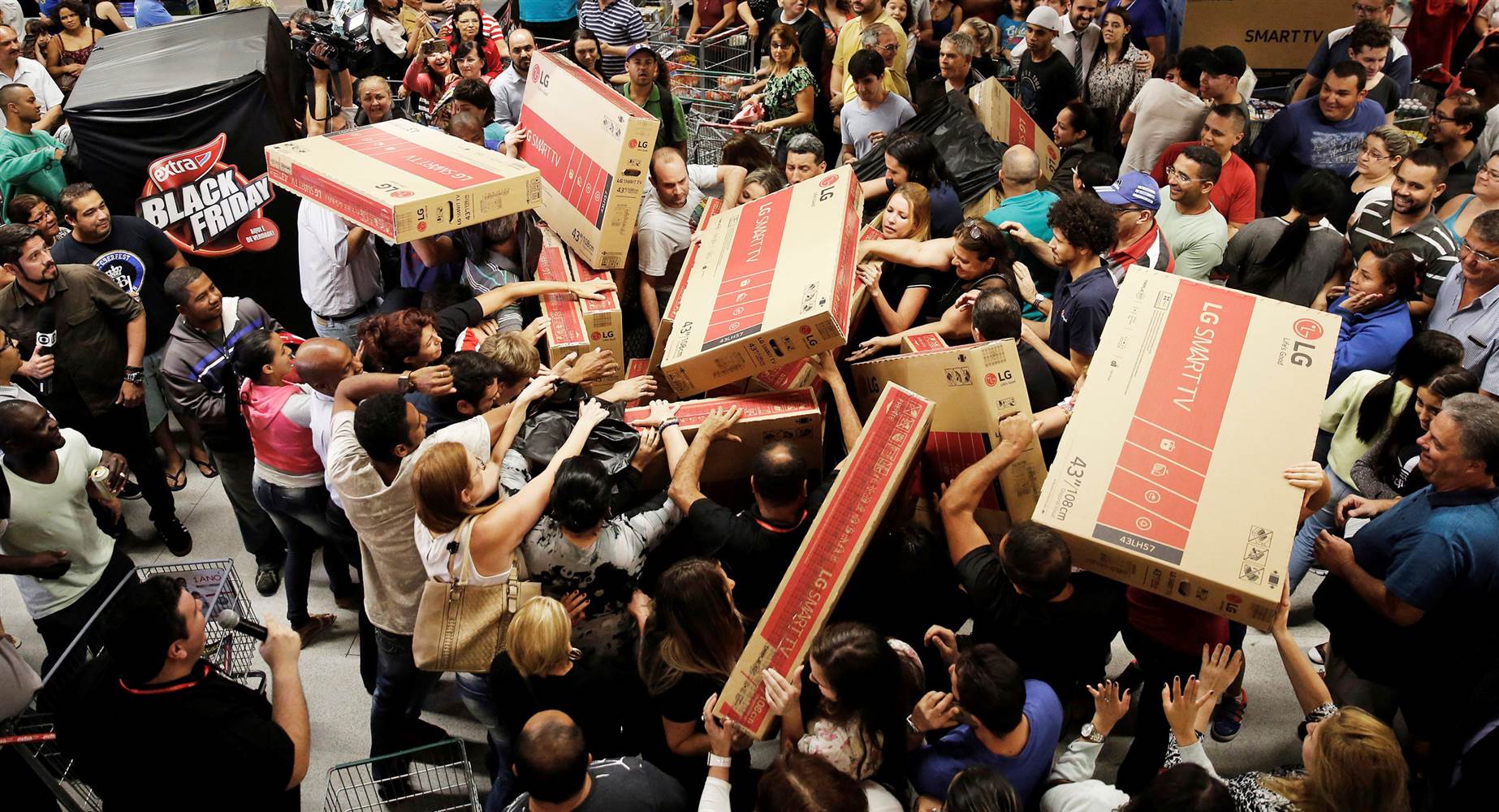There is a certain unsettling irony in the fact that Black Friday this year landed in the same week that the UN Secretary General issued the warning that the world is at the ‘point of no return’ with the climate crisis. Despite all we know about the damaging contribution our shopping habits are having to the state of our planet, the unabating force of consumerism shows no sign of relent.
Black Friday is notorious for bringing out the worst in our deep-rooted consumerist tendencies, with police frequently being called upon to separate angry shoppers in fights over everything from fridges to hair straighteners to TVs. There’s something about the pressing time limits and incessant advertising of the holiday season that makes it distinctly harder than usual to realise that you probably don’t need that state-of-the-art cake pop maker or new, still extortionately overpriced eyebrow kit.
Consumerism and the climate crisis are highly interlinked. A recent study published in the Journal of Industrial Ecology revealed that the combined impact of everything we consume is responsible for up to 60% of global greenhouse emissions and between 50 and 80% of land, material and water use.
It’s no secret that the fast fashion industry has a lot to answer for when it comes to environmental issues; the UN reported in 2018 that 10% of global greenhouse emissions could be attributed to the fashion industry, as a result of its long supply chains, excessive transport use and energy intensive production methods. Tech gadgets – another Black Friday favourite – have also recently been revealed to be responsible for the emergence of the worlds fastest growing waste stream.
The tension between private companies pursuing profit-maximisation and growing concerns about the long-term sustainability of doing so was encapsulated by a 2015 Black Friday campaign by US clothing brand Patagonia. The ad showed a piece of Patagonia clothing alongside the caption ‘DON’T BUY THIS JACKET’; apparently in an attempt to address issues of consumerism and its negative impact. The publicity stunt was a success on at least one front – company sales increased by 30%.
More often than not, blame is thrown at big business and negligent governments when it comes to these issues, and I am certainly not denying that the brunt of responsibility for change does lie within these two camps. However, there is a certain degree of hypocrisy in rallying at protests and criticising other people for their choices, whilst merrily continuing on with our next-day delivery spending sprees and Black Friday sales hoards.
It’s easy to turn one’s nose up at someone for the mountains of bacon and mince in their Aldi shop – but is it really fair to do so right before logging on to ASOS to make another mass purchase? Incidentally, next-day delivery is vying for top-place when it comes to unsustainable shopping practices – with the high transport and packaging costs associated with free returns and inflexible timing for deliverers coming at great detriment to the environment.
Obviously, it is unfair and unfeasible to expect anyone to be entirely consistent in all of the many, multifaceted choices we have to make on a daily basis. But perhaps we could all benefit from being a little more wary of criticising the behaviour of others whilst remaining ignorant of the the potential damage that is being caused by our shopping habits.
Image: NBC News

